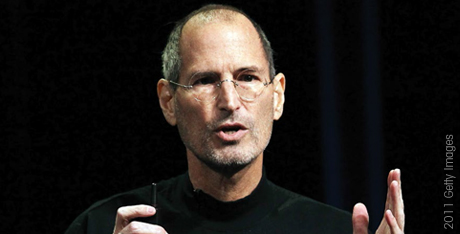We like to think that we are free. Free from boundaries and limitations. Yet, though we talk about freedom, ultimately we are bound — by our bodies, health, minds, and age, and by what forms the border of our life — death.
Death puts limits on the extent of our lives. Not knowing when it will come increases the pressure on us to make our presence felt. Having death as our border, if we will acknowledge it, opens the doorway to truly living our lives.
“Remembering that I’ll be dead soon is the most important tool I’ve ever encountered to help me make the big choices in life.” – Jobs
Steve Jobs, when he was dying of cancer, is widely quoted to have said, “Remembering that I’ll be dead soon is the most important tool I’ve ever encountered to help me make the big choices in life.”
Rather than facing the fact of our death and letting it inform our priorities and force us to truly live, many of us try to avoid thinking and talking about it. We would rather go about “enjoying” our lives as if we will live forever.
You may have heard the story of the man who wanted to do just that, a fairytale written by Theodora Ozaki. (Ozaki, 1908) The author writes of Sentaro, who was so afraid of death and illness that he journeyed to the Shrine of Jofuku and prayed for immortality.
Magically flown to the “country of Perpetual Life” where people never die, Sentaro found a shocking state of affairs. Here, people worked in vain to try to end their lives. They took potions and sought poisons because they longed for the release of death from the tedium, sameness and boredom of a life without an end.
Sentaro was the only happy person in that land, but eventually time passed and the problems, annoyances and sameness of daily life became old, while his body did not. He began to understand why the other residents of this land were seeking a way out.
“Doctors have a habit of trying to make each individual live a bit longer. I think it runs very deep.”
“Ultimately, Sentaro’s journey turned out to be a dream in which he learned that he is not ready for everlasting life. He chose to return to his own country, and his mortal life, but was forever changed by an awareness of the precious nature of this fleeting existence.
Like Ozaki, real-life nonagenarian philosopher Mary Midgley believes living forever is not only the stuff of fairytales, but vastly overrated.
“Doctors have a habit of trying to make each individual live a bit longer. I think it runs very deep. They should be given a better idea of health that doesn’t necessarily mean living longer,” states Midgley. (New Scientist, 2012) She claims that this unrelenting focus on extending human life should be questioned, and the goal should be to live well, not live long.
And what if Steve Jobs had lived to be 100? Sonia Arrison paints a fascinating picture of a world — not far from now, she claims — in which living to 100 is commonplace.
Do we truly want to live forever, or are we simply afraid to die?
“We are at the cusp of a revolution in medicine and biotechnology that will radically increase not just our life spans, but also, and more importantly, our health spans.” (Arrison, 2011)
Arrison claims that if the top 1% of our best innovators and creators live to 100, our world would see a huge boon in creativity, collaboration, and overall benefit to society.
“It is innovation which ultimately drives economic growth over the long term, and much of innovation is driven by the top 1%,” says Arrison in an interview published online. (Psychology Today, 2012)
With the unrelenting pace of medical advances, super-extended life could be a reality in the not-toodistant future. But is that really want we want? Do we truly want to live forever, or are we simply afraid to die?
In the work of aging, facing one’s own mortality is one of the portals to becoming an elder, to becoming truly wise. Ease with one’s own eventual death, and the limits or boundaries to this life, is probably the most important part of our living.
Rabbi Zalman Schachter-Shalomi suggests that we should embrace death, become friendlier toward death as part of a richer life. (Schacter-Shalomi, 1995) As we examine our thoughts around death, journal about it, talk with trusted friends, or even attend a lecture or workshop around the topic, we become more comfortable with our own dying.
Surprisingly, this type of investigation gives us a kind of release and leaves us with more and renewed energy to live. Like Sentaro, we can take our increased understanding of death and put it to use leading a meaningful life.
And like Steve Jobs, we can use this most important tool, the knowledge that there is only a finite time allotted, to add increased clarity to our action and bring our priorities and values into sharper focus. Indeed, knowing it will end is what gives it meaning.




Sources